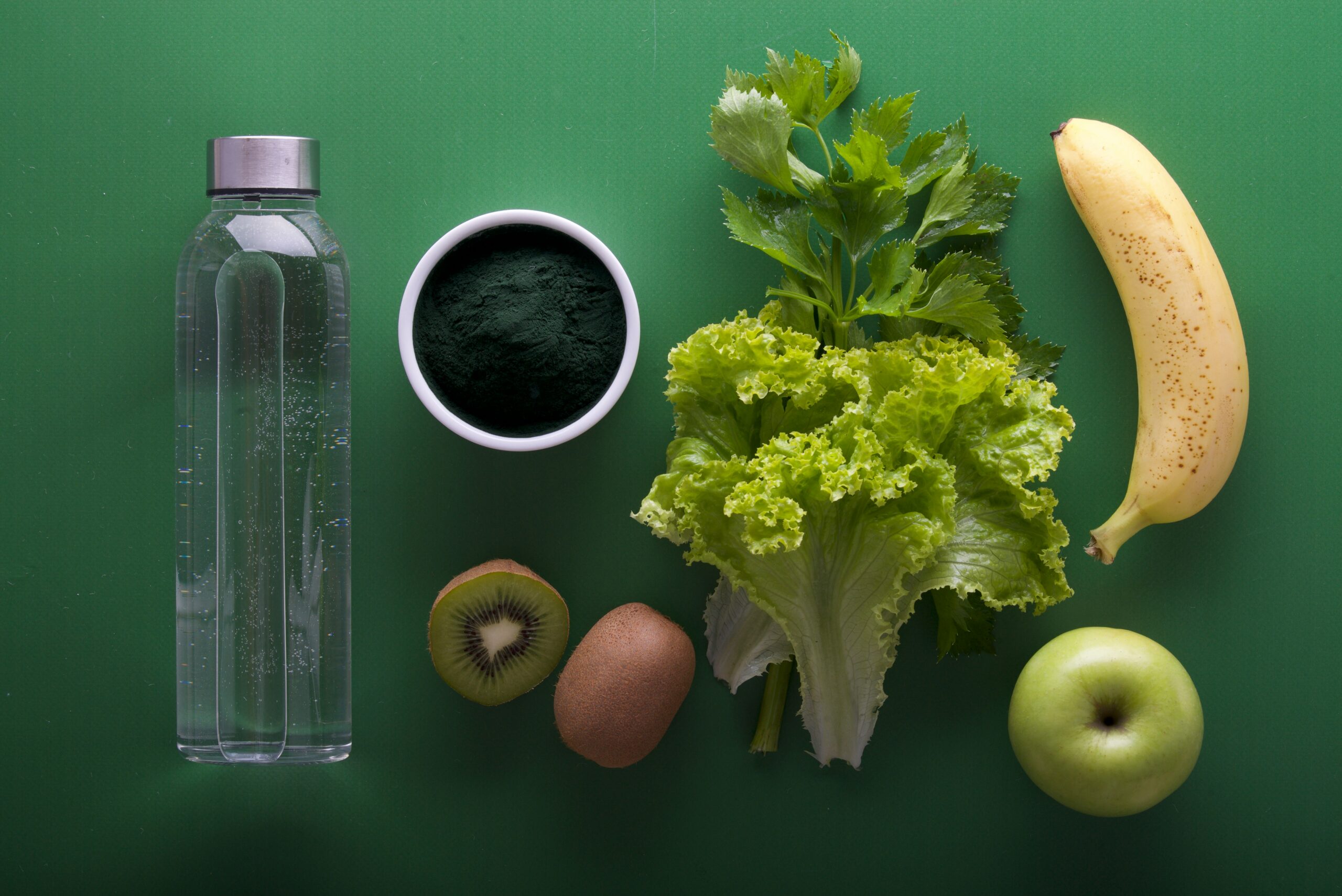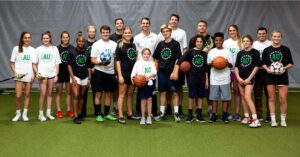Teenage soccer players have unique nutritional needs. You’re growing, training hard, and dealing with school stress all at the same time. Your body needs more fuel than adult players, and what you eat directly affects how you feel during practice and games.
Good nutrition improves your energy levels, helps you focus better on the field, and speeds up recovery between sessions. It’s not about following a strict diet—it’s about making smart choices that support your training and growth.
This guide covers the key nutrients you need, when to eat for best results, how to stay properly hydrated, and simple habits that make good nutrition automatic. These tips will help you feel stronger and play better without making eating complicated.
Key Nutrients for Teenage Soccer Players
Carbohydrates Are Your Main Fuel
Your muscles run on carbohydrates during intense training and games. Think of carbs as the gas in your tank; without enough, you’ll run out of energy halfway through practice.
Good carb sources include oatmeal, whole grain bread, rice, pasta, fruits, and vegetables. These provide steady energy that lasts longer than sugary snacks, which give you a quick boost followed by a crash.
Aim to include carbohydrates in every meal, especially on training days. Your body stores carbs as glycogen in your muscles, but those stores only last about 90 minutes of hard activity.
Protein Builds and Repairs Muscle
Growing teenage athletes need more protein than their peers. Protein repairs the tiny muscle damage that happens during training and helps build new muscle tissue.
Include protein sources like chicken, fish, eggs, beans, nuts, and dairy products throughout the day. You don’t need huge portions. About the size of your palm per meal works well.
The timing matters too. Having protein within 30 minutes after training helps your muscles recover faster and adapt to the work you’ve done.
Don’t Skip Healthy Fats
Fats provide long-term energy and support brain function. They’re especially important during longer training sessions and help your body absorb certain vitamins.
Good fat sources include avocados, nuts, olive oil, and fatty fish like salmon. These foods keep you satisfied longer and provide steady energy that complements carbohydrates.
About 25-30% of your daily calories should come from healthy fats. They’re calorie-dense, so a little goes a long way.
Essential Vitamins and Minerals
Growing athletes need their daily dose of vitamins and minerals. These include iron, calcium, and vitamin D. Iron carries oxygen to your muscles. Levels that are too low can lead to fatigue and feelings of weakness. There are several sources of iron, including meat, spinach, and beans.
Calcium and vitamin D build strong bones that can handle the demands of soccer. Dairy products provide calcium, and you get vitamin D from sunlight and fortified foods. If you’re concerned about getting enough, talk to your doctor about supplements.
Meal Timing and Portion Tips
Pre-Training Fuel
Eat a meal 2-3 hours before practice or games. Focus on carbohydrates with some protein and minimal fat, which digests slowly and might cause stomach issues.
Good pre-training meals include oatmeal with fruit, a turkey sandwich, or pasta with lean meat. If you only have 30-60 minutes before activity, stick to easily digestible carbs like a banana or sports drink. Avoid trying new foods on game day. Stick with familiar options that you know your stomach can handle.
Post-Training Recovery
The first 30 minutes after training is crucial for recovery. Your muscles are most receptive to nutrients during this window, so don’t wait too long to eat.
Aim for a 3:1 ratio of carbs to protein. Chocolate milk actually works great for this—it has the right nutrient balance and is convenient. Other options include a turkey sandwich, Greek yogurt with fruit, or a protein smoothie. This recovery nutrition helps replenish your energy stores and starts the muscle repair process immediately.
Portion Control
Eat enough to fuel your activity but not so much that you feel sluggish. Your stomach should feel satisfied but not stuffed before training. Listen to your hunger cues and adjust portions based on your training schedule. You’ll need more food on days with intense practice and can eat lighter on rest days.
Hydration Strategies
Even mild dehydration hurts your performance. Just 2% fluid loss reduces your endurance, reaction time, and decision-making ability. In hot weather, you can lose several pounds of water through sweat in a single practice. Dehydration also makes you more likely to get injured and takes longer to recover from training. Your muscles and joints need proper hydration to function correctly.
How Much Water Should You Drink?
Start hydrating early in the day, not just when you feel thirsty. Aim for pale yellow urine as a sign you’re well-hydrated.
Drink 16-20 ounces of water 2-3 hours before training, then another 8 ounces 15-30 minutes before you start. During activity, try to drink 6-8 ounces every 15-20 minutes.
After training, drink 16-24 ounces for every pound of body weight lost through sweat. Weigh yourself before and after practice to get an idea of your fluid losses.
Recognizing Dehydration
Watch for early warning signs: headache, fatigue, decreased performance, or dark yellow urine. By the time you feel thirsty, you’re already mildly dehydrated.
Sports drinks can help during long, intense sessions over 60 minutes, but water works fine for most training. The electrolytes in sports drinks help replace what you lose through sweat.
Simple Nutrition Habits for Consistency
Limit Junk Food and Sugary Drinks
You don’t have to eliminate treats completely, but they shouldn’t make up a large part of your diet. Junk food provides empty calories without the nutrients your growing body needs.
Sugary drinks are particularly problematic because they add lots of calories without making you feel full. Save sodas and energy drinks for special occasions and focus on water, milk, or 100% fruit juice.
Plan Around Your Schedule
Pack snacks and meals that fit your training schedule. Having healthy options ready prevents you from grabbing whatever’s convenient when you’re hungry.
Good portable snacks include trail mix, granola bars, fruit, and sandwiches. Keep these in your soccer bag so you always have something nutritious available.
Stay Consistent on Rest Days
Your nutrition needs don’t disappear on days you don’t train. Your body is still recovering from previous sessions and preparing for the next one.
Maintain regular meal patterns even when you’re not active. This keeps your energy levels stable and supports the ongoing process of muscle repair and growth.
Conclusion
Good nutrition gives teenage soccer players the foundation they need to train hard, recover quickly, and perform their best. It’s not about perfect eating—it’s about making smart choices most of the time that support your goals on and off the field.
Focus on getting the right nutrients, timing your meals around training, staying hydrated, and building consistent habits. Small changes in how you eat can make a big difference in how you feel and play.
Athletes Untapped: Complete Player Development
Looking for personalized guidance on nutrition, training, and skill development? Athletes Untapped connects teenage players with private coaches who provide tailored advice to help you reach your full potential. Browse our soccer coaches to find certified professionals who understand the unique needs of developing athletes.




